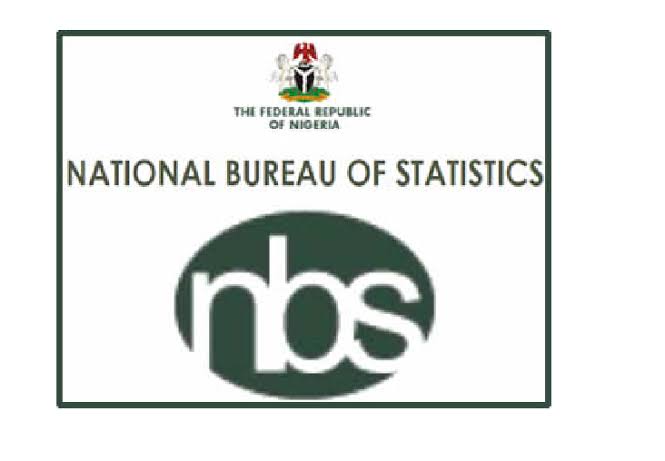Nigeria’s Gross Domestic Product (GDP) figures were released at the weekend by the National Bureau of Statistics (NBS) showing a growth of 3.54 per cent for the second quarter of 2022 but analysts are worried that the country’s growth rate may be slower by the end of the year.
Already, the growth recorded for the second quarter of 2022 is slower than the growth recorded in the second quarter of 2021, although faster than 3.11 per cent growth recorded in the first quarter of this year.
According to the statistics agency, the Q2 2022 growth rate decreased by 1.47 per cent points from 5.01 per cent growth rate recorded in Q2 2021 and increased by 0.44 per cent points relative to 3.11 per cent in Q1 2022. “However, quarter-on-quarter, real GDP grew at -0.37 per cent in Q2 2022, reflecting lower economic activity in Q2 2022 than in the preceding quarter.
“In the quarter under review, aggregate GDP stood at N45.004 trillion in nominal terms. This performance is higher when compared to the second quarter of 2021 which recorded aggregate GDP of N39.123 trillion, indicating a year-on-year nominal growth rate of 15.03 per cent. The nominal GDP growth rate in Q2 2022 was higher relative to the 14.99 per cent growth recorded in the second quarter of 2021 and higher compared to the 13.25 per cent growth recorded in the preceding quarter.”
The growth reflects the retarded economic activity during the quarter than was witnessed in the first quarter and was largely impacted by the recent increases in fuel, food, and other commodities during the period.
Analysts at Cowry Assets noted that power shortages, infrastructure challenges and insecurity, limited investment inflows, and business expansion further damped Nigeria’s growth prospects, further heightened by inflationary pressure in 2022.
Also, with Nigeria not reaping from higher oil prices owing to high subsidy payments and lower crude oil production, government’s revenue is threatened, raising the need to borrow.
Consequently, the NBS report revealed that Nigeria in Q2 2022 recorded an average daily oil production of 1.43 million barrels per day (mbpd), lower than the daily average production of 1.61mbpd recorded in the same quarter of 2021 by 0.18 mbpd and lower than the first quarter 2022 production volume of 1.49 mbpd by 0.06mbpd.
Given the decline in oil output in the second quarter of 2022 according to OPEC sources, the growth of the oil sector was negative mainly due to oil theft and limited investments in the oil and gas sector. Thus, the oil sector’s real growth grew 14.27 percentage points during the quarter, signaling an increase from -26.04 per cent in Q1 2022 and 0.89 per cent points relative to the rate recorded in Q2 2021.
Aggregately, the oil sector contributed 6.33 per cent to the total real GDP in Q2 2022, down from the figures recorded in the corresponding period of 2021 and the preceding quarter, where it contributed 7.42 per cent and 6.63 per cent respectively.
However with inflation at 17 year record high of 19.64 per cent, and income of many still stagnant and investment instruments yielding negative returns, Nigerians are not feeling the impact of the expanding economy. NBS in the just released data noted that the recent rising prices have adversely impacted on the second quarter 2022 performance.
Commenting on the GDP figures, Also, head, Financial Institutions Ratings at Agusto& Co, Ayokunle Olubunmi, noted that, while the good news is that The economy is expanding, “it does not mean that all activities in the economy is doing well. It is just that the size of the economy is getting bigger.
He however noted that, for the man on the street, the GDP growth is not as relevant as the impact of the fast rising prices of goods and services. “The way things are going, what everybody is concerned about is inflation and unfortunately, measures adopted by the Central Bank of Nigeria (CBN) will actually hurt the GDP growth,” he said.
Citing the recent upward revision of the interest rate on CBN interventions as well as minimum interest payable on savings and fixed deposits, he said, this may inadvertently impact GDP growth. “The interest rate on intervention funds have been increased and also interest on savings have gone up.
“So what happens is that corporates are more reluctant to lend now especially with insecurity and political tensions in preparations for the 2023 elections. The economy growth rate may eventually reduce a bit for full year 2022.”
To analysts at Cowry Assets, while the need for Nigeria to grow at a considerably greater pace of between five and six per cent is sacrosanct to achieve more inclusive growth and get closer to its growth potential, “we opine that the soaring inflation, particularly in view of commodity price shocks and imported food inflation due to the Russian-Ukraine conflict, pending subsidy payments by the government, and tumbling daily oil production volumes may pose as a downside risk to growth this year.”
Likewise, analysts at Afrinvest West Africa say they foresee a gloomy outlook on the oil GDP and do not envisage material improvement with respect to industrial-scale theft and weak infrastructure plaguing the oil sector. “The downside risk to our forecast could materialise from intensified monetary tightening to rein in runaway inflation, worsening forex crisis which could cripple real sector activities, increase in spate of insecurity, the impact of adverse weather events such as flooding on agriculture and risk of negative spillover from the ongoing geo-political tensions,” they pointed out.





